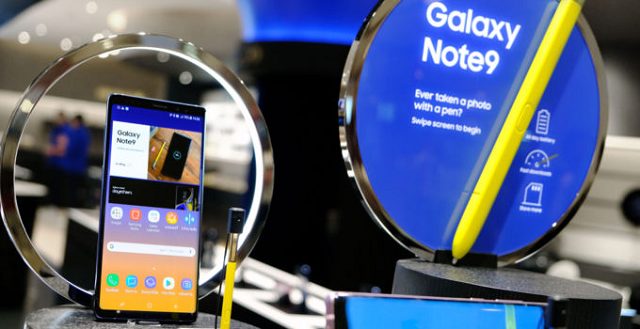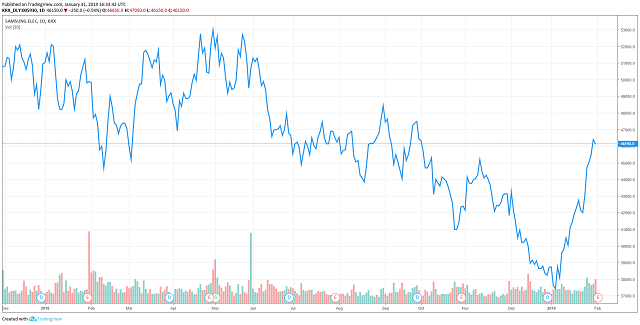Apple has struggled to win over the Chinese mobile phone market as reports have suggested but Samsung is also having a similar issue.
Samsung Electronics revealed that it recorded a 31 percent decline in net profit in the fourth quarter of 2018 as the operating profits of its mobile business plunged by nearly 33 percent.
SAMSUNG SEES LARGE NET PROFIT DECLINES
Analysts at Samsung attributed the overall decline in profits to various geopolitical factors including the U.S.-China trade war.
Due to macroeconomic uncertainties, the company said that its memory business will likely not strongly rebound until the second quarter of 2019.
“Looking ahead, Samsung expects demand in the memory business to remain weak in the first quarter due to seasonality and macroeconomic uncertainties as well as inventory adjustments by major customers,” Samsung said.
CW Chung, an analyst at Nomura, told The Wall Street Journal that Nomura also sees Samsung beginning 2019 with a tough first quarter and gradually recovering in the latter half of the year.
“We expect Samsung’s quarterly earnings to reach the trough in the first quarter of 2019 and begin to recover from the second half,” CW Chung said.
TrendForce has reported that the price of dynamic random-access memory (DRam) is set to fall by over 20 percent in the first quarter of this year, which will contribute to the company’s hardship in the next two months.
But, despite the slowdown in the global economy, the South Korea-based electronics giant said that as the demand for memory products picks up, it will perform strongly beginning June.
“For 2019, the company expects overall annual earnings to decline due to weaker performance by the memory business. Demand for memory products and [organic light-emitting diode] panels is expected to pick up from the second half,” the firm stated.
Because of Samsung’s wide range of businesses that include QLED display manufacturing, chips, TVs, and appliances, the weakening demand for high-end mobile phones in key regions like China has had less impact on the general trend of the company.
However, the magnitude of the decline in the projected net profits of Samsung was taken aback by investors.
Intel, Nvidia, and other technology giants have recorded a drop in the range of 5 to 15 percent in their share price in the past two weeks, demonstrating the weakness in the technology and chip manufacturing sector.
CAN GALAXY S10 REVITALIZE SAMSUNG’S MOBILE BUSINESS?
Earlier this week, CCN reported that Apple has found it challenging to win over the Chinese mobile phone market.
While the company has attributed its mediocre performance in China to the trade war, analysts have suggested that it is the maturing iPhone models that has made users less compelled to purchase new models.
Samsung and its Galaxy series face a similar problem in the Chinese market. Due to the strong presence of Huawei and Oppo that offer cheaper alternatives, it has proven to be difficult to target Chinese consumers with premium models with high pricing.
Some reports have said that the new Galaxy S10, Samsung’s flagship mobile phone model, could revitalize the company’s mobile business.
According to a report from The Verge, Samsung believes the launch of the Galaxy S10 will “prop up sales and business performance in the coming months,” allowing the company to recover in the following quarters.
Although unconfirmed, Samsung is rumored to be working on integrating a cryptocurrency wallet to its Galaxy S10 model through Samsung Pay, a move that may appeal to new generation users and millennials.
Local publications including The Korea Herald reported that Samsung Pay may integrate the crypto wallet into the popular payment application used by more than 10 million users, which could provide an edge over competing digital payment applications.













